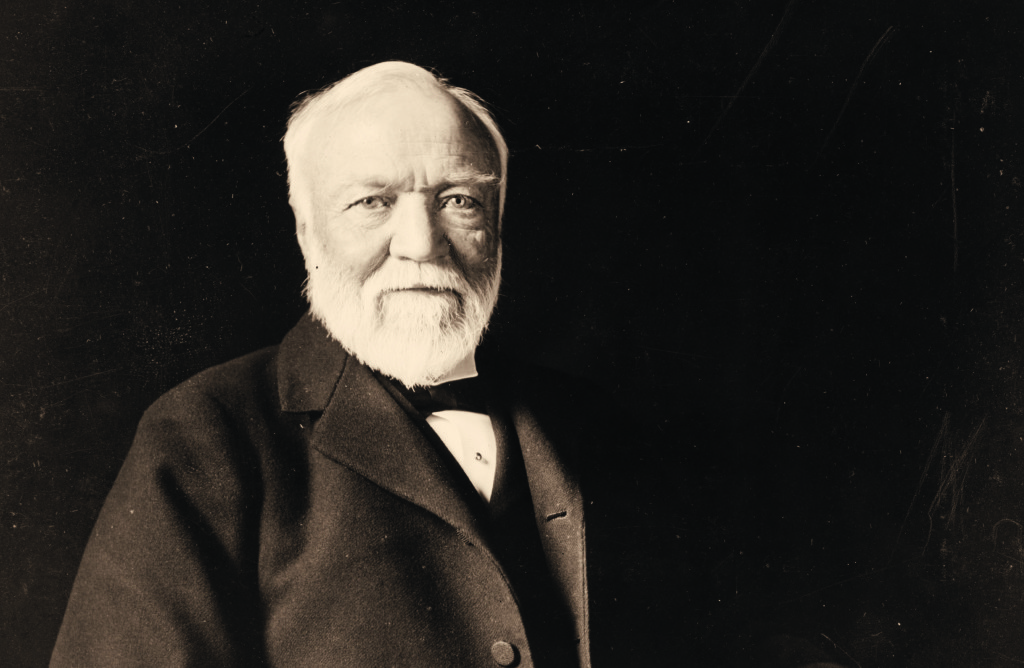While he didn’t get to live to see the future for which he paved the way, one imagines Andrew Carnegie glimpsed it often enough in his dreams. Born in the early 19th Century to near-penniless parents, Carnegie travelled to America with his mother and father in search of better prospects after industry in Scotland had slowed. At thirteen, Andrew was already putting in the long hours most modern workers don’t see until well into their careers. But he would come to see greater heights than the factory floor of a cotton mill.
Carnegie began his profession as a telegraph operator, honing his skills for listening and evaluating, two traits that would pay off as he continued his career at the Pennsylvania Rail road Company, rising through the ranks to become a young superintendent. It was during this time that Carnegie began to amass power, investing in and profiting from businesses tied to the rail road industry. Seguing into the iron business after the Civil War, he used his railroad relationships to produce actual rails made from iron. Carnegie however, made his real fortune and larger-than-life reputation in steel. Due to a revolutionary process of making the metal, Carnegie Steel Company became one of the largest producers of steel in the world, creating a new, cost-effective process of producing railways. It also cemented Andrew Carnegie’s legacy as one of the modern era’s first great innovators.
There is little success where there is little laughter.
The modern railway would not exist today without the efforts of Andrew Carnegie. He shows that vision and hard work can achieve success.




